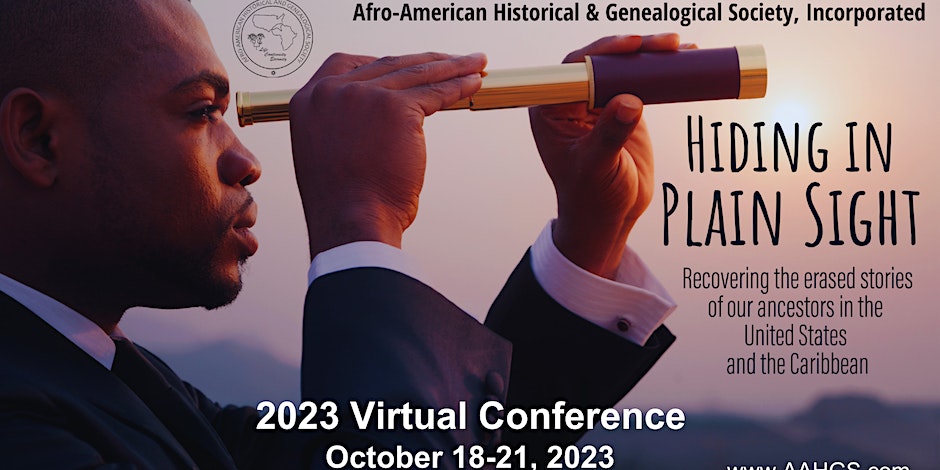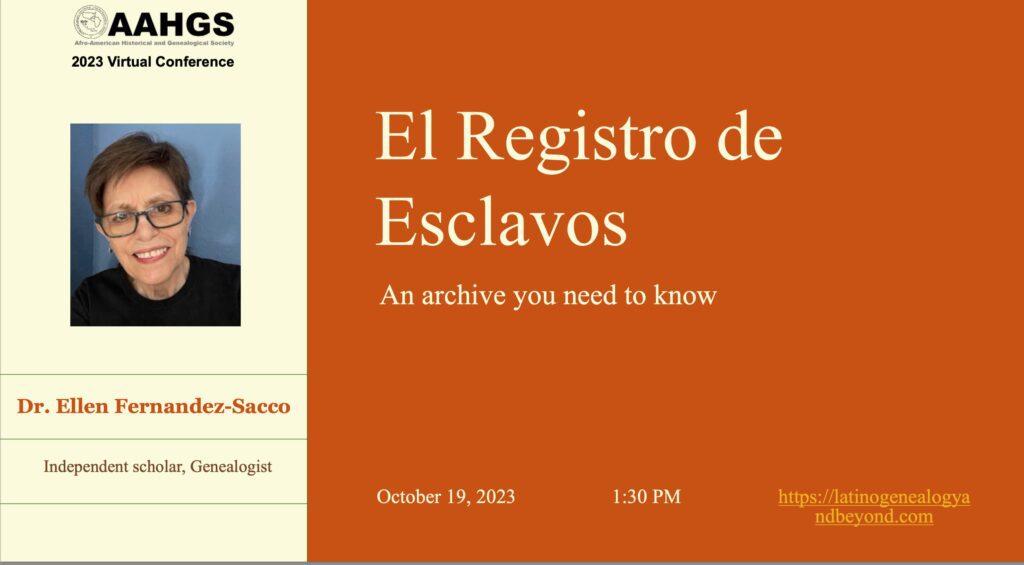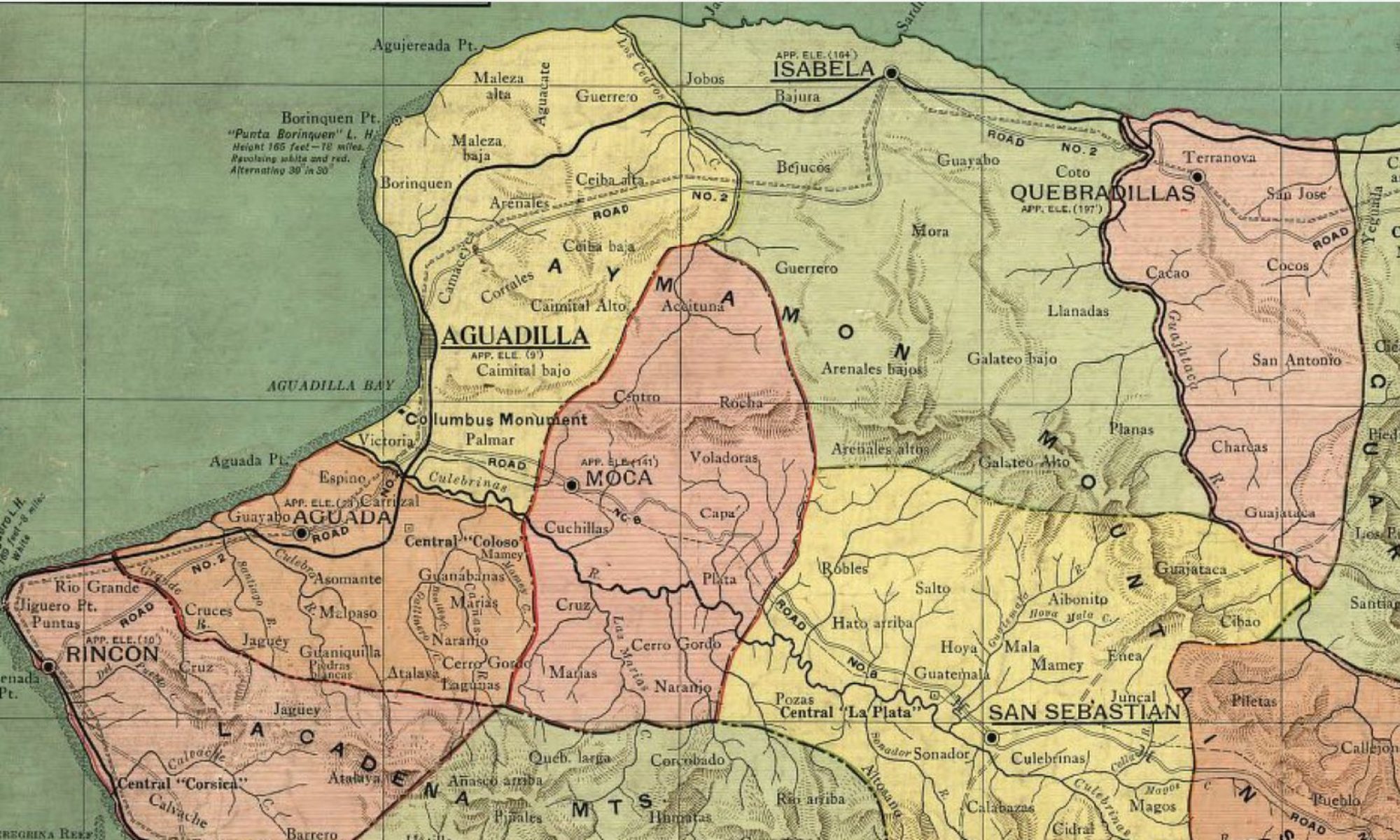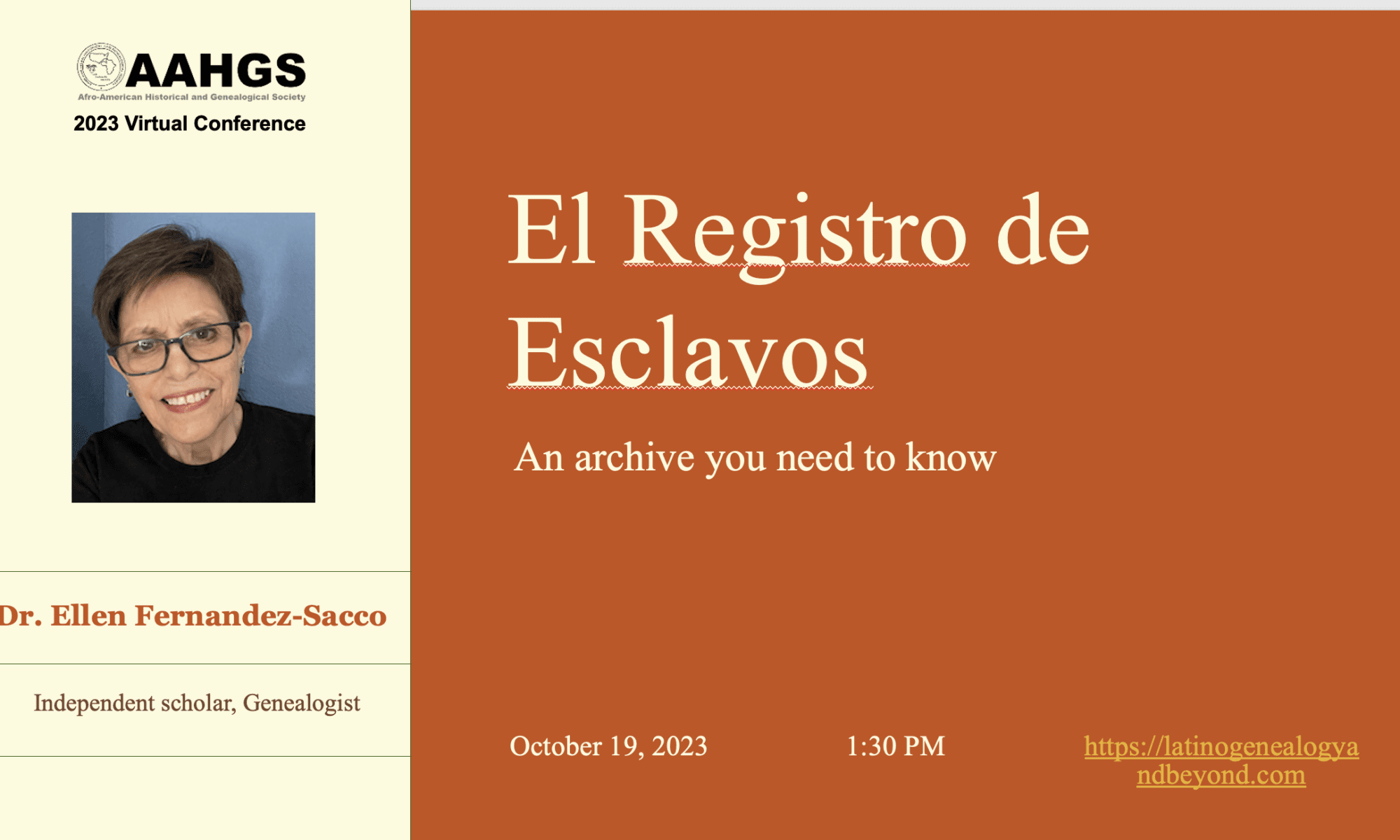Taiguei (Greetings)!
This has turned out to be a busy month! I finished my last article for the series on “Reconstructing Missing Volume of the Registro Central de Esclavos, pt 4” for the forthcoming volume 24 of Hereditas: Revista de la Sociedad Puertorriquena de Genealogia. I hope to submit “Looking for Lorenzo Ubiles, Alcalde de barrio Humacao 1873.” for the AAHGS Journal shortly.
I’m happy to announce that on Thursday October 19, 1:30 PM-2:30 EST, I’ll be presenting “El Registro de Esclavos: An archive you need to know”, at “Hidden in Plain Sight: Recovering the erased stories of our ancestors in the United States and the Caribbean”, the 44th Annual 2023 AAHGS Virtual Conference. Excited to be among so many great presentations & presenters that includes friends & family from Black ProGen Live! Sessions will be available until Dec 31.


Here’s the description: The process of emancipation in Puerto Rico formally began in 1868, with the registration of over 30,000 enslaved persons using cedulas, small registration forms 6 x 8” in size. The information on these forms were copied to create the volumes of the Registro de Esclavos, issued in 1872. FamilySearch microfilmed two series of these documents from the enormous collection of Gobiernos Españoles collection. These are now searchable on the FamilySearch site as “Puerto Rico Slave Registers, 1863-1879”. These entries shed light on the identities of people as they transitioned to freedom just fifteen years before the establishment of the Registro Civil (Civil Registration) in 1885 and the formal end of slavery in 1886. The information covers name, origin, parents, partner, children, enslaver, physical details and issues around the purchase of freedom, manumission, or even the death of the person listed. The ages range from days old to persons in their 80s. These documents are useful for identifying family members and confirming their identities and locations pre-1885, and who may not appear in the 1910 census. Recently digitized archives on the Archivo Digital Nacional de Puerto Rico (ADNPR.net) that overlap with the information in the Registro de Esclavos will be covered. This work is a contribution to the ancestors, to help bridge them with their descendants.

